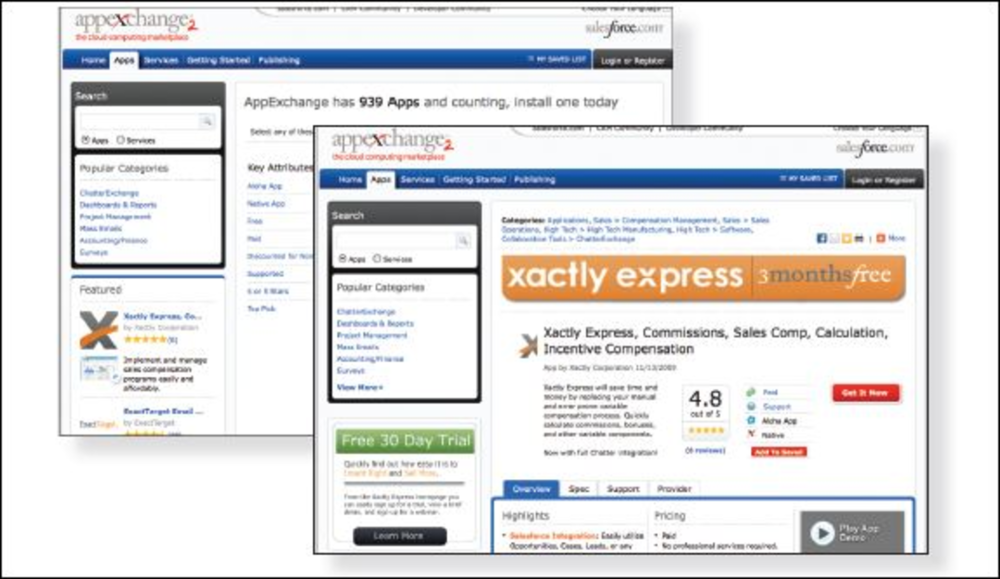Technology industry heavyweights Microsoft and Google began selling third-party business-to-business customer relationship management (CRM) applications this year, challenging Salesforce.com’s lead in the space.
Google launched its Apps Marketplace in March, including 20 CRM platforms that can run from the Google Apps control panel. In September, Microsoft will debut its Dynamics Marketplace, which will accompany the public beta release of the Microsoft Dynamics CRM 2011 platform.
If Salesforce.com, which was a pioneer five years ago when it opened its own online application marketplace, known as AppExchange, is concerned about the new entries to the market, the software-as-a-service company is not saying so publicly.
“It’s actually exciting for us,” said Al Falcione, senior director of product marketing for Salesforce.com. “This is the future of how people buy and install enterprise applications.”
Google and Salesforce.com were quick to say they don’t consider the other company to be a direct competitor. The companies have collaborated in the past.
CRM applications sold by Google tend to have broader customer-relations functions than those found on Salesforce.com, said Falcione.
“Acquiring and maintaining customers is core to any business; there’s a large market for CRM tools that track customer interactions, sales opportunities and support needs over time,” a Google spokesperson said, via e-mail.
Salesforce.com and Microsoft, however, have been bitter rivals in the CRM space.
Microsoft sued Salesforce.com in Washington State federal court May 18, alleging the company infringed on nine of its patents.
The patents in question were not specific to CRM, although that is the area where the two companies compete after Salesforce.com countersued. The companies settled the suits August 4.
“I will say they’re five years behind us,” Falcione said. “We’ve done a lot of investment in our platform to give partners all the tools they need. It’s more than just building the apps. It’s having the upgrades, managing the upgrades, letting companies install those apps and integrate them with our core apps.”
A Microsoft spokesperson said the Dynamic Marketplace creates a “win-win situation” for its customers and partners.
“It opens up new opportunities for partners by giving them the ability to showcase their solutions and extensions for a worldwide CRM community and connect with prospects through built-in lead management capabilities,” the spokesperson said, via e-mail. “From a customer perspective, it gives them access to the most innovative solutions and services that will help them more rapidly deliver business value by extending their current solutions or deploying new solutions.”
Third-party applications are needed because platforms — such as Salesforce.com’s Sales Cloud or Service Cloud, or Microsoft’s Dynamics CRM 2011 — cannot accommodate every industry and business function.
For example, The Arbor Day Foundation designed 15 applications that will be sold on the Microsoft Dynamics Marketplace to organize charitable events, grant management and outreach for fundraising efforts.
An application by InsideSales.com, sold on Salesforce.com’s AppExchange, allows salespeople to dial phone numbers in less time, improving effi ciency.








